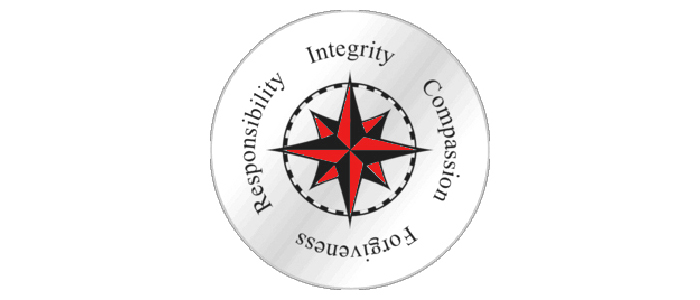Has anyone seen my moral compass? This article looks at why now, more than ever, we need to have integrity.
It sometimes feels like someone’s torn up the rule book. With internet and social networking, it’s possible that everything we do can be recorded and broadcast. This should mean that we have to live with transparency.
And yet the onset of fake news, a disregard for facts and the undermining of our institutions can mean it’s possible for all of us to bend the rules and get away with it.
So how do you keep your moral compass? Which is the right direction, and where in the modern world do you look to find a version of right and wrong that doesn’t conflict with others’ views and with their right to live in peace?
What do you believe is right and wrong in respect of your behaviour towards others? Do you, like many recently exposed people in the public eye, believe that, “it’s fine if nobody finds out”? Or maybe you believe that “everyone else is doing it – so that makes it OK”.
I believe that in the end, you need to look within yourself and really think.
I actually believe that when all the ‘baggage’ – the erroneous, self-preserving, self-justifying beliefs that we build up – falls away, then it is perfectly obvious what is right and wrong. You don’t need anyone else to tell you. When you are no longer driven by the need to protect yourself, massage your own ego, look good, or survive at others’ expense, then simple, naturally ‘good’ behaviour naturally emerges. You don’t have to think about it or work on it. It’s obvious what the ‘right’ thing is to do (or not to do).
So the work you need to do isn’t academic. It’s not about philosophy, morals and ethics. It doesn’t include years of study (unless that’s what appeals). It doesn’t have to include religious or any other beliefs (unless that’s the way you are called). It just involves looking within, and, every time you catch yourself in mean, sleazy, cowardly or dishonest behaviour (and you will!), exploring where the behaviour came from, what you really think about your behaviour, and whether you would admire or condone that behaviour in someone else.
You’ll find, if you are like the vast majority of sane, mature human beings, that you have a very good moral compass. It just needs practice and daily use. From paying your taxes to telling little white(ish) lies, you’ll catch yourself, if you are willing to, in these slightly questionable acts and thoughts every day. Clean up your act – and stop rationalising the unacceptable, as if you don’t have a choice. We all have a choice and we are all capable of discerning our better selves, a better course of action, better choices.
All the truly great leaders out there learned this lesson as part of their journey to maturity. Actions which are geared towards making yourself look good, or proving your own ‘rightness’ will nearly always cause harm to others. The end by no means always justifies the means. And the price of such careless beliefs and behaviour can be staggeringly high.
